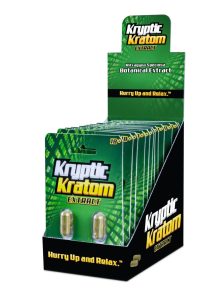Challenging interview questions, including final interview questions, are designed to do more than test your knowledge. They test how you think and how you handle pressure. A few will surprise you, while others will challenge your confidence head-on. At this point in time, you have to avoid rehearsed lines, you just have to own your story. Otherwise, you can risk losing the opportunity.
9 Ways to Respond to the Hardest Questions in Interviews
Here are nine smart ways to handle the toughest interview questions:
1. Be Ready to Shine With Your Wins
Start with your own track record, and think about the moments that mattered. The ones where you stepped up, solved something, or made things better. Write them down and keep them close because these are the stories that speak loudest. Also, learn the company’s rhythm; what they stand for and how they operate, as it will help you shape your answers. Then, run through the hard questions verbally. Hearing your own words strengthens your composure in the real interview.
2. Look Beyond the Surface
Not every question is what it seems. Some are just a doorway to something deeper. So, listen carefully and resist the urge to reply immediately. If anything seems off, request clarification, since that indicates you are focused and care about precision. The purpose is not to impress with speed, but to respond with depth. Likewise, before answering, make sure you understand the angle of the question fully. For instance, if they ask, “Tell me about a failure,” clarify whether they want a work example or a personal one. Doing this will help you respond better and more accurately.
3. Silence Can Be Strategic
When presented with a tough question, pause before speaking. A short pause shows thoughtfulness and gives you time to structure your response. During this time, recall a story or example that fits. Moreover, speaking too quickly can make answers feel shallow; a calm, deliberate reply makes even complex answers appear well-considered.
4. Tell the Story
People remember stories, not bullet points, and not lists. So when you are asked about something you did, walk them through it. What was going on? What needed to be done? What did you actually do? What came out of it? Keep it clean and real, because it will help you stay focused and also help them follow along.
5. Drop the Mask
Trying to sound perfect never works. It feels flat and fake. So, instead of doing that, talk about the messy parts. The times you missed and the lessons that came after. Always be honest and specific. Moreover, tell them what changed because this will make you relatable.
6. Show You Get People
Challenging questions often involve collaboration or disagreements. So, show emotional intelligence: explain the context, your steps, and the result. For example, if asked about how you dealt with a colleague disagreeing with you, you could answer, “When a colleague resisted a deadline, I held a private discussion, and we adjusted priorities to succeed”.
7. Prove It or Drop It
Saying “I’m adaptable” counts for little without an example. The same applies to being proactive, precise, or collaborative. Therefore, pick one and show it through a story. But keep it short, because tough interview questions are not the place for vague claims. The recruiters always want proof, so give them something real, be it a moment or a result, something they can picture. That is something that will make you stand out. An example is: “I took over a delayed project, reorganized tasks, and met the deadline ahead of schedule”. Tangible examples make your claims believable and memorable.
8. Keep It Relevant
Every answer should point somewhere towards the role and the team, and towards what they actually need. So think about what matters to them. Then connect your experience to that, not in a forced way, but just with intention. Additionally, make it easy for them to see how you fit.
9. Let Your Presence Speak
How you carry yourself matters when answering tough interview questions. Therefore, sit with purpose, speak calmly, and maintain eye contact. Moreover, keep answers focused; one to two minutes is enough. For example, if asked about handling unexpected changes, you could say: “Unexpected budget cuts occurred, so I reprioritized tasks and delivered results on schedule”.
Conclusion
How you respond matters more than what you say in interviews. For example, executive interview questions test knowledge, judgment, composure, and insight under pressure. Remember, you are shaping impression, not just answering, and each reply builds or breaks momentum. So stay sharp, own the space, and let experience speak without overselling. The goal is not perfection, it is connection. When you leave, let them remember how you made them think.








